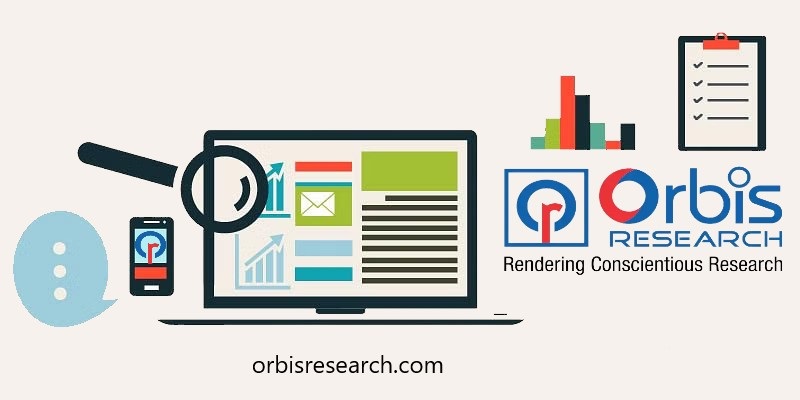
Introduction
In the ever-evolving landscape of digital marketing, businesses are constantly seeking effective strategies to enhance their online presence and drive targeted traffic. Search Engine Marketing (SEM) has emerged as a powerful tool in this endeavor. This comprehensive blog post will delve into the intricacies of SEM, its significance in the business world, and how it contributes to overall marketing success. We will explore the key components of SEM, its impact on search engine rankings, and the crucial role it plays in attracting potential customers.
Understanding Search Engine Marketing (SEM)
SEM is a digital marketing strategy that involves promoting a website by increasing its visibility in search engine results pages (SERPs) through paid advertising. It encompasses a range of activities, including search engine optimization (SEO) and pay-per-click (PPC) advertising. SEM is a dynamic and multifaceted approach that aims to connect businesses with their target audience at the moment they are actively searching for relevant products or services.
The Components of SEM
1. Search Engine Optimization (SEO)
SEO is the organic component of SEM, focusing on optimizing a website to improve its visibility in unpaid search engine results. This involves on-page and off-page optimizations, keyword research, content creation, and technical enhancements. By aligning a website with search engine algorithms, businesses can enhance their organic search rankings and attract quality traffic.
2. Pay-Per-Click (PPC) Advertising
PPC is the paid component of SEM, where advertisers pay a fee each time their ad is clicked. This model allows businesses to bid for ad placement in a search engine’s sponsored links when users enter relevant queries. Popular platforms for PPC advertising include Google Ads and Bing Ads. The effectiveness of PPC campaigns lies in targeting specific keywords, demographics, and geographic locations to reach a highly relevant audience.
The Significance of SEM in Business
1. Increased Visibility and Brand Awareness
SEM enables businesses to achieve instant visibility in search engine results. By appearing at the top of the page for relevant queries, companies can enhance their brand awareness and reach a broader audience. The combination of SEO and PPC ensures a comprehensive approach to capturing both organic and paid search opportunities.
2. Targeted Advertising and Audience Segmentation
SEM allows businesses to target their advertising efforts with precision. Through keyword targeting and demographic filters, advertisers can tailor their campaigns to reach specific audiences. This level of segmentation ensures that ads are displayed to users who are more likely to convert, maximizing the return on investment (ROI).
3. Measurable Results and Analytics
One of the key advantages of SEM is its measurability. Analytics tools provide detailed insights into the performance of campaigns, allowing businesses to track impressions, clicks, conversions, and other relevant metrics. This data-driven approach enables continuous optimization, ensuring that marketing budgets are allocated to the most effective strategies.
4. Quick and Flexible Campaign Implementation
Unlike traditional marketing methods, SEM offers a rapid and flexible approach to campaign implementation. Advertisers can create and launch campaigns quickly, making it an ideal strategy for time-sensitive promotions, product launches, or events. Additionally, adjustments can be made in real-time based on performance data.
Impact on Search Engine Rankings
1. SEO and Organic Search Rankings
While PPC provides immediate visibility, the long-term benefits of SEM are evident in SEO. A well-executed SEM strategy positively impacts a website’s organic search rankings. Quality content, relevant keywords, and a positive user experience, which are integral to SEO, are also essential components of a successful SEM campaign.
2. Quality Score and Ad Ranking in PPC
In PPC advertising, search engines use a Quality Score algorithm to determine the relevance and quality of ads. This score influences the ad’s position in search results and the cost-per-click (CPC). By optimizing ad content, relevance, and landing pages, businesses can improve their Quality Score and achieve higher ad rankings without necessarily increasing their bids.
FAQs about Search Engine Marketing
Q1: What is the primary difference between SEO and PPC?
A1: The main difference lies in the way traffic is acquired. SEO is organic and focuses on improving a website’s visibility in unpaid search results, while PPC involves paid advertising, where advertisers pay for each click on their ads.
Q2: How can businesses determine the success of their SEM campaigns?
A2: Success can be measured through key performance indicators (KPIs) such as click-through rates (CTR), conversion rates, and return on ad spend (ROAS). Analytics tools provided by search engines offer detailed insights into campaign performance.
Q3: Are there any risks associated with SEM?
A3: While SEM can yield significant benefits, it comes with risks such as click fraud, where competitors or malicious entities click on ads to deplete budgets. Advertisers must implement measures to mitigate these risks.
Q4: How important is keyword research in SEM?
A4: Keyword research is fundamental to SEM success. Identifying relevant keywords that align with user intent ensures that ads are displayed to a highly targeted audience, improving the chances of conversion.
Q5: How is the success of SEM campaigns measured? A5: Key performance indicators (KPIs) such as click-through rates (CTR), conversion rates, and return on ad spend (ROAS) are used to measure the success of SEM campaigns. Analytics tools provided by search engines offer detailed insights into campaign performance.
Q6: Are there risks associated with SEM? A6: Yes, SEM comes with risks such as click fraud, where competitors or malicious entities click on ads to deplete budgets. Advertisers must implement measures to mitigate these risks and ensure the integrity of their campaigns.
Q7: Why is keyword research important in SEM? A7: Keyword research is fundamental to SEM success. Identifying relevant keywords aligning with user intent ensures that ads are displayed to a highly targeted audience, increasing the likelihood of conversion.
Q8: How quickly can businesses see results from SEM campaigns? A8: PPC campaigns can yield immediate results as ads are displayed once the campaign is launched. SEO, being an organic strategy, takes time to build momentum, and results are typically visible over the long term.
Q9: Can businesses run SEM campaigns on multiple search engines? A9: Yes, businesses can run SEM campaigns on multiple search engines. Google Ads is widely used, but other platforms like Bing Ads also offer opportunities to reach different segments of the online audience.
Q10: Is SEM suitable for all types of businesses? A10: Yes, SEM can be adapted to suit various business types and sizes. Whether a small local business or a global enterprise, SEM provides a flexible and scalable marketing approach that can be tailored to specific goals and budgets.
Conclusion
In conclusion, the role of Search Engine Marketing (SEM) in business cannot be overstated. Whether through organic efforts like SEO or paid advertising via PPC, SEM offers a comprehensive approach to enhancing online visibility, driving targeted traffic, and ultimately achieving marketing success. Businesses that leverage the power of SEM can adapt to the dynamic digital landscape, connect with their audience, and stay ahead of the competition. As technology continues to evolve, SEM will remain a cornerstone of effective digital marketing strategies, providing a pathway for businesses to thrive in the online realm.
https://www.globalbankingandfinance.com/the-role-of-search-engine-marketing-sem-in-business/




